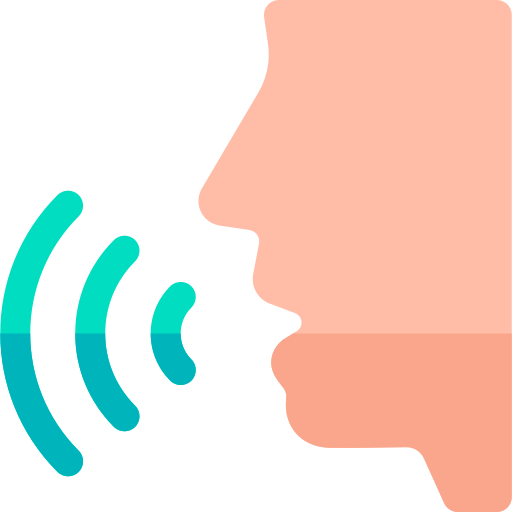As a former IELTS Speaking examiner and trainer, I helped many learners prepare for the speaking component of the IELTS Exam.
The following preparation strategies for IELTS Speaking questions in Parts 2 and 3 of the exam can help you achieve your desired score.
 Free Image from Canva Pro
Free Image from Canva Pro
Check out this Byte about the IELTS Speaking Exam Part 1 if you haven't already. 👈
Did you know?
Format of Part 2 of the IELTS Speaking Exam
The duration of Part 2 is 3-4 minutes.
You'll be given a card with a topic, and then given 1 minute to prepare and make notes.
You need to speak about the topic for 2 minutes.
The topics include describing or commenting on a person, a thing, an object, an activity, or an experience.
The topic will have subtopics, which are provided to help you plan your response.
The examiner will say:
Now, I’m going to give you a topic, and I’d like you to talk about it for 1 to 2 minutes. Before you talk, you’ll have 1 minute to think about what you’re going to say. You can make some notes if you wish. Do you understand?
After 1 minute, the examiner will say:
Alright? Remember you have 1 to 2 minutes for this, so don’t worry if I stop you. I’ll tell you when the time is up.
Did you know?
How to Answer Questions in Part 2 of the IELTS Exam
Tips for Taking Notes:
 Photo by David Travis on Unsplash
Photo by David Travis on UnsplashAvoid writing full sentences in your notes because you don't have enough time, and also you aren't supposed to read your notes word for word.
Think of good vocabulary and expressions related to the topic that you can use, and write them down.
Think of the verb tenses you need to use in your answers and write down a few words to remind you of using these tenses.
Tips for Answering Questions:
 Photo by LinkedIn Sales Solutions on Unsplash
Photo by LinkedIn Sales Solutions on UnsplashRead the topic prompt carefully before you start speaking and make sure you understand it fully. Try to cover the topic and most of the subtopics provided.
Plan your answer. Jot down some key points or ideas you want to cover during your talk.
Organize your thoughts in a logical manner. Use a clear and coherent structure, such as an introduction, main points, and conclusion. Also, use connectives to link your ideas.
Extend your answer if you finish in less than 2 minutes. Use the remaining time to elaborate on your main points, or add additional examples or details.
Part 2 Sample Question and Answer
To familiarize yourself with Part 2 of the IELTS Speaking Exam, listen to the audio below.
The candidate gives an answer to the following topic:
"Describe something you own which is very important to you."
You should explain:
where you got it from
how long you have had it
what you use it for
why it is important to you
Access a transcript of the audio clip above: IELTS Practice Speaking Exam Part 2

Your turn! Speak about the same topic, record your answer, and use the checklist below to evaluate yourself:
Did you speak for the full 2 minutes?
Did you cover the topic and the subtopics on the task card?
Did you organize your answer logically and use connectives to link your ideas?
Did you use appropriate vocabulary and grammar structures?
Subscribe for more quick bites of learning delivered to your inbox.
Unsubscribe anytime. No spam. 🙂
Format of Part 3 of the IELTS Speaking Exam
The duration of Part 3 is 4-5 minutes.
It will be based on Part 2. For example, if you were asked to talk about a book you've read recently in Part 2, then the discussion questions will be about reading, the importance of reading, or about education.
The examiner typically asks you to compare, analyze, speculate, or give an opinion.
The questions will be about people in general rather than about yourself, which can be challenging.
The examiner will ask:
We have been talking about a book you have recently read. I would like to discuss with you one or two general questions related to this.
How to Answer Questions in Part 3 of the IELTS Exam

Listen carefully to the questions and answer with the appropriate tenses. The questions might be about past, present, or future events.
Try to generalize rather than use personal examples. Examiners consider using personal examples in Part 3 as a weakness because it means you can't express your thoughts about abstract ideas.
Ask the examiner to clarify. It's perfectly acceptable to ask the examiner to rephrase or repeat the question, e.g. "Sorry! I didn't quite catch that. Could you please rephrase it (explain it or repeat it)?"
Buy yourself time to think if a question is challenging. Use some of the following phrases: "Actually, that is something I've never thought about before, but.../I don't really know much about that, but..."
Did you know?
Part 3 Sample Questions and Answers
To familiarize yourself with Part 3 of the IELTS Speaking Exam, listen to the audio below.
The candidate answers the questions below:
In Switzerland, what kind of possessions do you think give status to people?
What do you think of this way of thinking, that I need to have a car or certain clothes to show my status?
Do you think this will change? In the future, will cars and designer clothes be status symbols in the same way?
Access a transcript of the audio clip above: IELTS Practice Speaking Exam Part 3

Read the question below and choose the best response:
"Do you think ads have an impact on what people buy?"
A. "Yes, I think ads have a huge impact on what people buy. For example, I once saw an ad for a new brand of sneakers, and even though I already had a perfectly good pair of sneakers, I went out and bought the new ones because the ad made them look so cool."
B. "Definitely, ads have a profound influence on people's purchasing decisions. Now, the increasing use of social media and targeted advertising has enabled advertisers to create highly personalized and relevant messages that appeal to specific groups of people."
C. "Yes, ads have an impact on what people buy. Ads influence people's decisions. They make people want to buy things."
Quiz
Choose the most effective response:
General Tips to Improve Your Speaking Skills for the Exam
Improve Your Vocabulary

Think in English instead of translating from your native language.
Take notes in English to build fluency and confidence in the language.
Use a monolingual dictionary that provides definitions and explanations in English to expand your vocabulary.
Learn collocations and idioms instead of just words. It will make you sound more fluent and natural.
Improve Your Grammar

Practice using advanced and complex grammatical structures. This page suggests some useful grammatical structures.
Learn from your mistakes. Understand the correct grammar rule and practice using it correctly.
Use online resources to help you improve your grammar. This page gives an overview of all the verb tenses.
Improve Your Pronunciation

Ask a teacher or a tutor to identify the problematic sounds for you to work on them. Some people have trouble with pronouncing /p/ and /b/ or /l/ and /r/.
Speak clearly and at an appropriate pace. Avoid speaking too fast or too slow. Use natural pauses and don't rush through your responses.
Be yourself. Don't try to sound like someone else or use language that is too formal or unnatural for you.
On the Day of the Exam

Make sure you get enough sleep the night before your exam so that you're well-rested and alert.
Have a healthy and balanced breakfast that will give you the energy you need to focus during the exam.
Plan to arrive at the exam center early so that you have plenty of time to check in and get settled before the exam begins.
Listen to English only from the moment you wake up on the day of the exam as a warm-up exercise.
Take Action

To become comfortable with the exam format and improve your speaking skills, you need to practice frequently.
Your feedback matters to us.
This Byte helped me better understand the topic.


